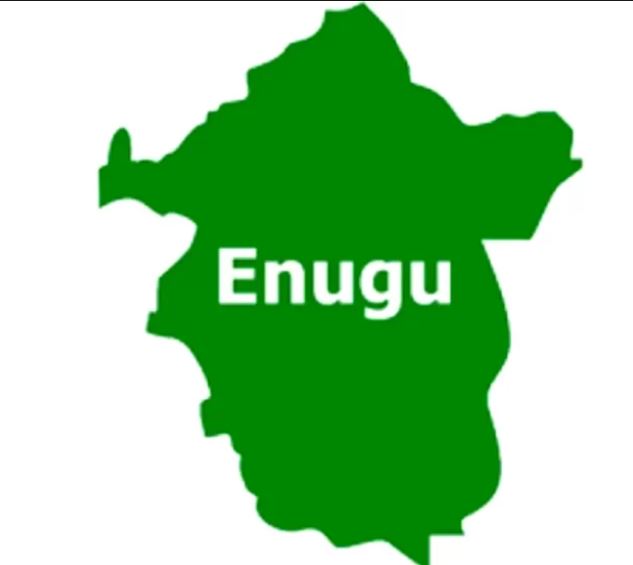Taxation in Enugu within the law — Nnamani, ESIRS Chairman

•Why Enugu was rated most expensive Nigeria City
By Dennis Agbo
The Chairman of Enugu State Internal Revenue Service, ESIRS, Mr. Emmanuel Nnamani has clarified that all taxes being collected in the state were legitimate and within the confines of the law.
Nnamchi also stated that Enugu was rated the most expensive City in Nigeria some months ago because of a temporary demand-driven inflation caused by projects development in the state, and blamed the high rents in the state on the developers’ style of family housing in place of mass housing.
The clarification became necessary following clamour by residents in the state for reduction or total eradication of taxes in the state, lamenting that the taxes were too much and resulted in high standard of living.
But addressing newsmen on Thursday, Nnamani said that the entire revenue being collected by the state were not only being used for the infrastructure developments and social services, but also fall within the ambit of the law of the federation.
“Taxes and revenues in Enugu State remain within the limits of the law. We do not impose any levies outside what the law permits,” he stated, pointing to the Personal Income Tax Act (as amended) as the guiding legal framework.
He explained that the ESIRS collects personal income tax through two lawful means: Pay-As-You-Earn (PAYE) for those in formal employment, and Direct Assessment for informal sector workers.
Nnamani disclosed that while compliance among salaried workers has been largely smooth,
the agency sometimes employs legal enforcement mechanisms to ensure compliance among self-employed individuals.
“A key challenge has been bringing the informal sector, especially market traders and transport operators, into the formal tax net. Upon assumption of office, this administration discovered that an overwhelming 99 percent of informal sector actors were not remitting taxes to the state, largely due to the disruptive influence of non-state actors engaged in illegal collections.
“In response, the government introduced a consolidated ¦ 36,000 annual levy for market traders. This amount, payable between January and March, covers all relevant state-level charges, including those by the Enugu State Waste Management Agency (ESWAMA), Enugu State Structures for Signage and Advertisement Agency (ENSSAA), storage fees, and business premises levies.
“Once this amount is paid between January and March, the trader owes nothing else for that year. For street vendors operating outside structured markets, an annual levy of ¦ 30,000 applies, with ESWAMA charges handled separately. Transport operators such as Okada riders, Keke drivers, minibuses, tankers, and trucks pay via a daily ticketing system. Traders who fail to pay by March 31 are subject to enforcement,” Nnamani clarified.
He however maintained that although the law allows for a 10% penalty on unpaid tax and an interest charge tied to the Central Bank’s Monetary Policy Rate of 27.5 percent, the state has adopted a softer, pro-business approach. According to him, “Instead of the full punitive charges, a flat ¦ 3,000 penalty is applied in most informal sector cases to promote ease of doing business and encourage voluntary compliance.”
Addressing growing concerns over rising rent, Nnamani rejected claims linking the trend to state tax policies. He described the issue as a national challenge influenced by supply and demand, rather than fiscal policy.
Citing personal experiences dating back to 2015, he observed that a shift in private development preference – from rental apartments to gated residential estates – has contributed to the housing squeeze.
“If we had more high-rise buildings, rent would drop. The state government is taking proactive steps through the Ministry of Housing and Housing Development Corporation to build mass housing and student hostels near institutions like ESUT and IMT, freeing up central city housing and helping moderate rents”, he said.
Nnamani further disclosed that in line with its commitment to transparency and digital innovation, the ESIRS has launched a tax calculator on its official portal, allowing residents to compute their taxes with ease and clarity. He said it was about transparency and giving the people confidence, and invited residents to compare Enugu’s tools with those in more advanced states like Lagos.
Responding to concerns that Enugu has become one of Nigeria’s most expensive states, Nnamani acknowledged the perception but clarified that the temporary inflation was largely demand-driven.
“With Enugu undertaking widespread infrastructural renewal – including smart schools, primary health centres, and hospitality infrastructure – the surge in construction activity has led to increased demand for building materials like granite and rods, which are sourced from other states. Once these projects are completed, demand will drop, and prices will stabilise,” he assured. He emphasised that the projects are visible testaments to what taxpayers’ money can achieve when properly managed.
The post Taxation in Enugu within the law — Nnamani, ESIRS Chairman appeared first on Vanguard News.







